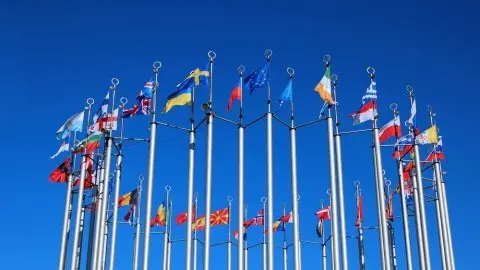What have we learnt from the UK’s updated borrowing plan?
There is much to learn from the UK's updated borrowing plan. We think it signals more borrowing is on the cards for developed countries, and that debt is here to stay. We expect limited impact on GBP interest rates thanks to the Bank of England intervention. The lack of additional T-bill supply is also welcome news for money markets such as commercial paper
More borrowing, one step at a time
The first take away from UK's updated borrowing remit covering the May to July period is that the Debt Management Office (DMO) is taking things one step at a time.
A new update will be published at the end of June with presumably new borrowing targets. We think this makes sense. Despite the sharp increase in borrowing, the coronavirus crisis is only in its infancy and we really don't know how much the measures put in place will end up costing.
We think there will be more
Updates to annual borrowing plans are not unusual but the scale of the change is: from £156bn of gilt issuance for the whole of the 2020-21 fiscal year to £180bn in a three- month period. The DMO says it would be wrong to assume that the pace of debt sales in the first four months should be extrapolated to the whole fiscal year (running from April 2020 to March 2021).
Given the exceptional circumstance and our view that we are still in a phase of downgrading growth expectations, we do not rule out abundant supply for the rest of the year.
Referring to a scenario analysis published by the Office for Budget Responsibility highlighting an additional £218bn borrowing need compared to the pre-virus budget. At the time the scenario described was premised on more pessimistic assumptions than consensus. But we think these assumptions are quickly becoming the base case now.
GBP rates remained low after the announcement
Impact for GBP interest rates ?
The next question is whether investors can absorb it without ‘choking on gilts’, and what impact will the new plan have on GBP interest rates.
Given the exceptional circumstance and our view that we are still in a phase of downgrading growth expectations, we do not rule out abundant supply for the rest of the year
We have argued previously that the gilt market can absorb a significant amount of extra issuance without flinching. For instance, in the fiscal year 2008-09, the DMO managed to raise £150bn, followed by an additional £230bn the following year, the majority through gilt sales. Market reaction to the new borrowing plan has been muted and the spread of 10-year sterling swap and bond rates to their euro equivalent remains historically low.
We thus have no doubt that the amounts discussed can be absorbed. For comparison, the Bank of England aims to increase its QE portfolio by £200bn, with the vast majority invested in gilts. The question is whether or not this is the last update. We think probably not, but in case of worsening financial stress, the central bank has the possibility to increase its purchases.
We've been there before: UK borrowing capacity is large
Good news for money markets
The good news for sterling money market is that the DMO expects it will rely solely on gilts to finance the extra deficit. One of our concerns since the beginning of the pandemic is that additional T-bill issuance could crowd out lower-rated assets, such as commercial paper (CP). This adds to our view that the Treasury might rely on overdraft at the BOE, the Ways and Means facility, rather than flood the market with debt.
The message overall is positive: the Treasury, the central bank, and DMO know they are walking on eggshells when it comes to financial stability, and are acting accordingly.
There is another takeaway from the choice of long-term instruments to finance new deficits: the debt is here to stay.
This might be seen as a slightly dimmer development for those who still believe that the coronavirus recession will be a transitory event. To us, this might be an indication that there is no plan to engage in self-defeating fiscal tightening that would threaten the recovery. We hope to be proven right in future official communication but in our opinion, growing out of the additional debt pile is the most effective strategy.
This publication has been prepared by ING solely for information purposes irrespective of a particular user's means, financial situation or investment objectives. The information does not constitute investment recommendation, and nor is it investment, legal or tax advice or an offer or solicitation to purchase or sell any financial instrument. Read more
Download
Download article
23 April 2020
In case you missed it: First tentative steps towards normalisation This bundle contains 12 Articles